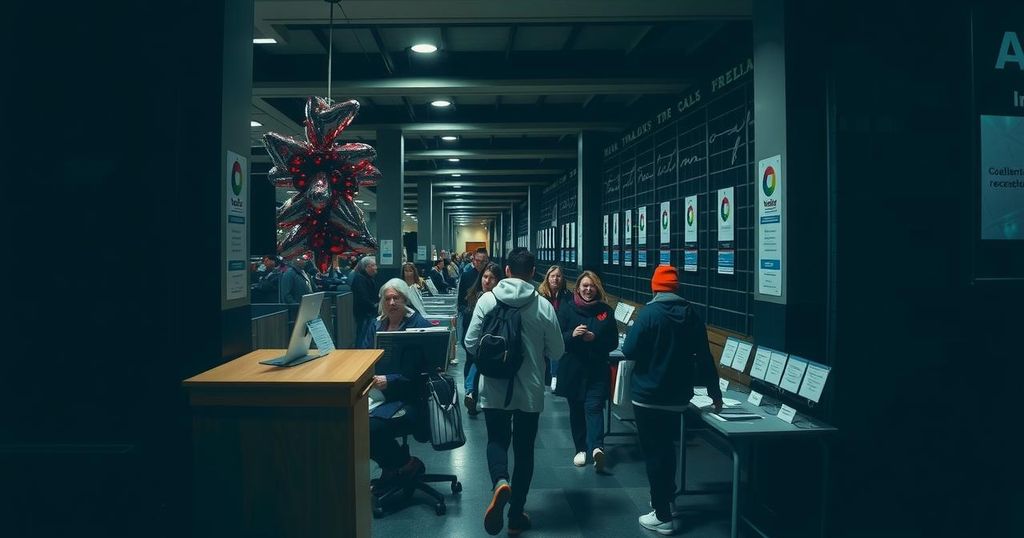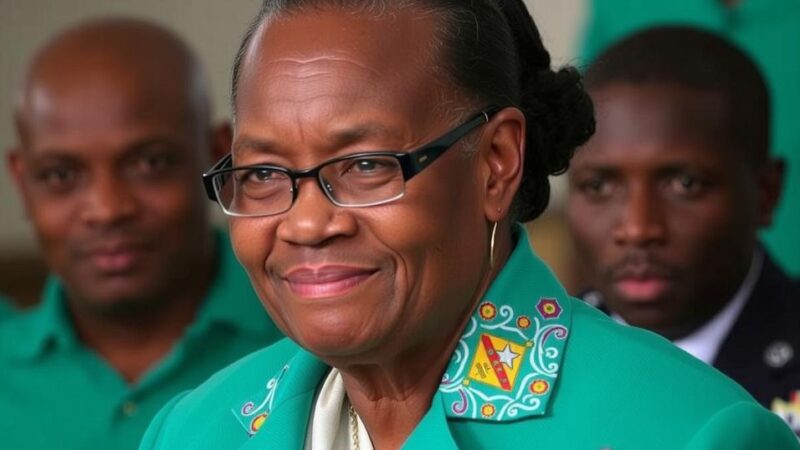Ireland is holding a closely contested election where the ruling centre-right coalition, Fine Gael and Fianna Fail, is challenged by the leftist-nationalist Sinn Fein amid a severe housing crisis and rising living costs. Voter support for all three parties is around twenty percent, signalling a potential return to power for the coalition if polling trends hold. The election highlights public frustration over housing management and affordability issues.
Ireland is currently engaged in a closely contested election characterized by pressing issues surrounding the housing crisis. The incumbent centre-right coalition parties, Fine Gael and Fianna Fail, are in a tight race with the leftist-nationalist party Sinn Fein, all polling near the twenty percent mark. Voter turnout commenced on Friday, with results indicating a chance for the coalition to retain power despite past opposition to Sinn Fein due to its historical affiliations with the Irish Republican Army.
The coalition led by Fine Gael and Fianna Fail, political adversaries previously, united after an inconclusive election in 2020, choosing to form a government rather than partner with Sinn Fein. Simon Harris, the leader of Fine Gael and the current Taoiseach, announced a 10.5 billion euro tax reduction and increased government spending following a substantial budget surplus. Although Fine Gael had initially led the polling, support waned after a controversial incident involving Harris went viral on social media.
Sinn Fein, having previously dominated opinion polls with approval ratings exceeding thirty percent, faced declining support amid criticisms over its liberal immigration policies. Furthermore, the campaign was heavily influenced by issues related to the high cost of living, particularly the severe housing shortage, resulting in escalating rents and property prices. Despite Ireland’s robust fiscal condition, bolstered by substantial corporate revenue from American multinationals, public dissatisfaction regarding government management of services persists, particularly concerning the inadequate housing developments during the country’s economic upsurge in the Celtic Tiger era.
As Ireland’s 43 multiseat constituencies prepare for ballot counting set for Saturday morning, the extensive process of proportional representation may delay the announcement of a definitive outcome for several days.
The election in Ireland is taking place during a period defined by deep-seated issues surrounding housing and living costs. The coalition government, formed by Fine Gael and Fianna Fail, came into existence following a prior inconclusive election in 2020, as these parties chose not to govern with Sinn Fein, which had secured the popular vote. This election is pivotal as it addresses the significant public frustrations regarding the management of public infrastructure amidst a backdrop of economic prosperity fueled by multinational corporations.
In summary, the Irish election reflects a dynamic landscape marked by a housing crisis and economic disparities. With both centre-right incumbents Fine Gael and Fianna Fail neck and neck with Sinn Fein, the outcome remains uncertain. The pressing concerns over living costs and housing inadequacies highlight the public’s demand for effective governance, setting the stage for possible shifts in political power depending on the final election results that are anticipated after an extended counting process.
Original Source: www.aljazeera.com







